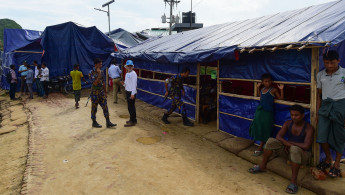600,000 Rohingya Muslims at 'serious risk of genocide' in Myanmar, UN warns
"Myanmar continues to harbour genocidal intent and the Rohingya remain under serious risk of genocide," the UN fact-finding mission to Myanmar said in the report they are due to present at the Human Rights Council on Tuesday.
Also read: 'Genocide Day': Thousands of Rohingya rally to mark two years of exile in Bangladesh camps
The country is "denying wrongdoing, destroying evidence, refusing to conduct effective investigations and clearing, razing, confiscating and building on land from which it displaced Rohingya," the report said.
Naypyidaw however rejects these claims, calling them "one-sided".
"Instead of making biased accusations, they should go on the ground and see the reality," Myanmar military spokesperson Zaw Min Tun said.
The mission reiterated calls for the UN Security Council to refer Myanmar to the International Criminal Court (ICC) or to set up a tribunal, like for the former Yugoslavia and Rwanda.
The Rohingya are a stateless ethnic and religious minority in Rakhine state in eastern Myanmar, most of whom are Muslim. They have been historically persecuted by state military and security forces, who over the years have killed thousands and forced hundreds of thousands to flee the country altogether.
The army has justified their crackdown as a means of rooting out Rohingya insurgents.
The military has become increasingly brutal in recent years, driving out Rohingya men, women and children from their homes and into refugee camps.
In 2017, an army crackdown against the minority in Rakhine state drove 740,000 people into Bangladesh amid allegations of mass atrocities by soldiers.
The UN probe accused the military of "war crimes", including forced labour and torture and said the Arakan Army, a militia fighting for the rights of ethnic Rohingya, was also guilty of abuses on a smaller scale.
Nearly a million Rohingya now live in refugee camps in southeast Bangladesh.
Follow us on Twitter: @The_NewArab





 Follow the Middle East's top stories in English at The New Arab on Google News
Follow the Middle East's top stories in English at The New Arab on Google News
![Israeli forces ordered bombed Gaza's Jabalia, ordering residents to leave [Getty]](/sites/default/files/styles/image_330x185/public/2176418030.jpeg?h=a5f2f23a&itok=_YGZaP1z)

